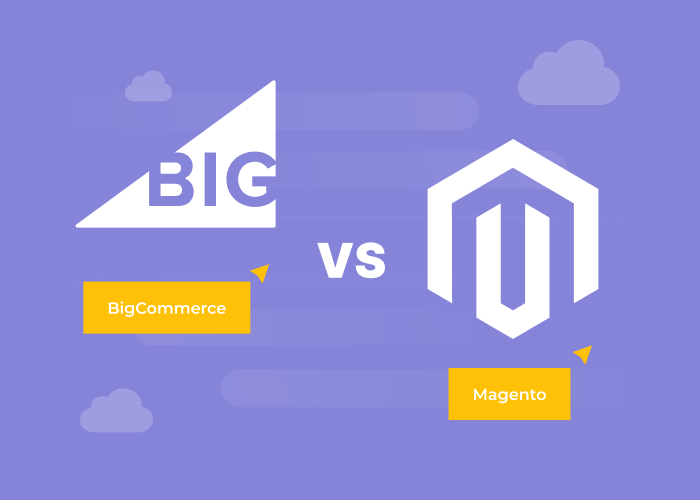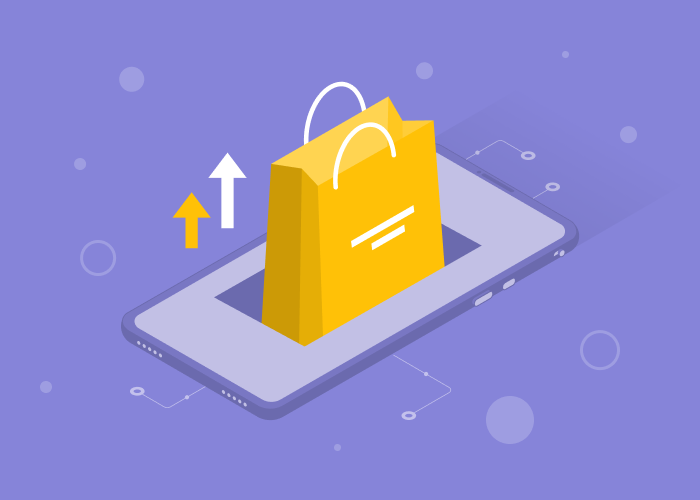Content
The Most Effective Communication Tools for Ecommerce Businesses

After a turbulent year of lockdown restrictions, more consumers than ever are now turning to digital.
In fact, in a recent survey by Rakuten Advertising, which polled over 8,000 global consumers, it was revealed that around 65% of UK consumers have purchased more online since the initial lockdown began.
Lets talk about itHave a project in mind?
And, with a remarkable 73% of consumers planning to buy primarily online this holiday season, this holiday season is bringing about a very busy period for online retail!
This influx of new online customers means your ecommerce business needs to be more on top of your communications and support strategy than ever.
Today, we’ll be walking you through some of the most effective communication tools and strategies for ecommerce businesses in 2021.

What is effective ecommerce communication?
Effective communication in ecommerce is all about letting customers reach out to you - whether that’s to give you feedback, ask a question or let you know about a problem they’re experiencing.
And in 2020, a strong ecommerce communication strategy will go far beyond simply providing customers with basic support over the phone or by email.
With social messaging tools, chatbots and even voice messaging for business, you can actually recreate the ‘shopping assistant’ experience in store. In other words, you can deliver your customers a memorable, human experience that encourages them to shop with you again next time.
The importance of communication in ecommerce
In today’s digital era, the best customer experiences are the ones that feel the most personal. That’s why more and more brands are using technology to deliver that ‘human’ touch.
Aside from the obvious fact that sometimes customers will have issues with their orders that they need to discuss with your support team, there are also other major benefits of communicating with your customers that you may not have previously considered.
The first major benefit of communicating with customers is that it allows you to build relationships with your customers by delivering them an excellent customer experience. Acquia recently reported that 85% of marketers say “a human touch is always needed, in addition to technology, for a positive customer experience”.
And this kind of positive customer experience is exactly what drives sales and customer loyalty for your brand. In a world where you can buy almost anything at the click of a button, customers today are increasingly driven by high-quality experiences.
In fact, according to Walker, customer experience is so important these days that it’s actually overtaking price and product as the key differentiator between stores.
Secondly, communicating with customers on your ecommerce store allows you to understand your customers better. Using a variety of conversational tools - from chatbots to voice messaging software - businesses are also able to monitor users and learn what times of day people prefer to message, as well as what types of questions people prefer to ask.
The insights you gain into how your customers think, what they like about your brand and when - and where - they are most active will benefit all of your efforts across Marketing, Customer Support and Sales.
Creating an effective ecommerce communication strategy
There are many different tools out there that can help you create a strong ecommerce communication strategy, and we’ll be exploring those later on.
But essentially, all of these tools fall under the umbrella of either asynchronous or synchronous communication - and we’d recommend offering both of these on your store.
Synchronous communication refers to live, real-time conversations between customers and businesses.Chatbots and phone calls, for example, are two forms of synchronous conversation.
With asynchronous communications, however, conversations occur whenever the customer prefers — whether that's in real-time, after finishing their meeting, or later that night when they have a spare moment. The conversation revolves around the customer’s availability, as both customers and businesses are able to pick up things right where they left off, whenever it is convenient for them to continue. Examples of asynchronous communication would be email, text messaging or exchanging voice notes.
Also read:
Hire a Shopware Developer
Hire a Magento Developer
Best B2B ECommerce Platform
The Best Multi-Vendor Marketplace Solution Benefits of Composable Commerce
The essentials of effective ecommerce communication
As we’ve just touched on, there are a variety of different ways your business can go about creating an effective ecommerce communication strategy.
However, at its heart, effective ecommerce communication is about making customers feel heard, understood and valued.
Here’s what making your customers feel special is all about:
#1 Keep your customer communications personal
The way you choose to communicate digitally with your customers makes all the difference between a customer feeling like they represent a problem that needs solving, or a relationship that you value.
In fact, Salesforce recently reported that 84% of buyers see being treated like a person as a vital part of winning their business.
So, in order to win your customers over, you need to show them how much you care. Use their name wherever possible, use voice when you can, and don’t leave them waiting for the right person to get back to them.
#2 Respect your customers time
HelpScout reported that 66% of buyers say that the most important thing to them in any online shopping experience is feeling that their time is valued.
Keep things easy for your customers by giving them a way they can reach out to you quickly - like leaving you a voice message or requesting a phone call from the right person.
#3 Go above and beyond to make your customers happy
If you really want to make a customer’s day – even after there’s been a big problem with their order or account – show them you’re willing to pull out all the stops to make things right again.
Even if this means spending a little more time or money on fixing your customer’s problem, keep a long-term mindset and remember that the more you do to help your customers, the more likely they are to return to your business – and to bring their friends and family with them.
Sometimes, going the extra mile may not be in response to a customer complaint at all, but simply involve your team being a little nicer than necessary. This could mean anything from packing sweets inside your customers’ delivery boxes to bigger, more ‘shareable’ acts of kindness.
To achieve all of the above, you need to start building a strong communications toolkit for your ecommerce store. Let’s take a look at some of the best tools for the job.

Must-have communication tools for your ecommerce website
#1 Chatbots
As we touched on earlier, chatbots were one of the first kinds of tools to take the world of Conversational Marketing by storm. Chatbots are not without their limitations, but in many ways, chatbots have come as a real gift to both businesses and customers.
They can be used to create one-on-one conversation, personalise on-site experiences and (when programmed right) can inject a lot of your brand’s personality into a Marketing conversation.
Plus, chatbots are cost-effective, much faster than email exchanges, and far more convenient than waiting on hold on the phone.
#2 SMS and messaging apps
More brands than ever are offering customers the opportunity to message them via Facebook Messenger, Twitter DMs, Instagram messages or even on WhatsApp.
Why? Because these are highly convenient channels, both for consumers and brands.
Customers are likely to check messages frequently, and can choose to respond at their own convenience. There’s no obligation to engage in a full-on conversation then and there.
#3 Social media
Where existing customers are concerned, the conversation doesn’t end once they’ve made a purchase. Social media is the ideal platform to add value to your products by providing ongoing service and advice.
And because it’s social by nature, social media is perhaps one of the most natural ways you can start communicating with and providing support to your customers.
Is voice an important communication tool?
At the end of the day, effective customer communication is all about making the buyer feel valued, understood and heard.
That’s why voice messaging is one of the must-have communication tools that every ecommerce business needs.
Voice is humans’ most powerful relationship-building tool - and has been for millennia. Talking is our fastest, easiest and most natural method of communication - and sometimes typing simply doesn’t cut it. When you bring the subtle nuances of tone, tempo and emotion into your business’ Marketing strategy through voice, you’ll start building stronger relationships with your customers than ever.
What’s more, as exchanging voice notes via a business’ website is a relatively new concept, you’ll build a reputation as a highly innovative (and human!) brand when you introduce voice messaging to your online store.
Final thoughts
In an ever-more technological world, it’s easy to forget about the human element of business. But consumers in the digital age want authentic and personal experiences when shopping online. They want to feel like they’re an important part of your business and that they’ve made a good choice in picking you over your competitors.
Developing a strong customer communications strategy is the key to adding this human touch to your customers’ experiences. We hope this guide to the most effective communication tools helps keep your buyers coming back for more!
If you need help with installing a tool for communicating with customers online, so our team will be happy to help you install it on your e-commerce site.
Let professionals meet your challenge
Our certified specialists will find the most optimal solution for your business.



